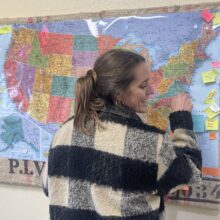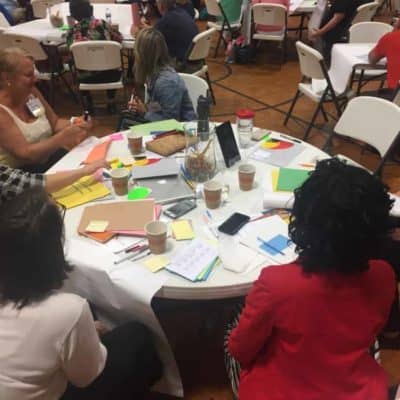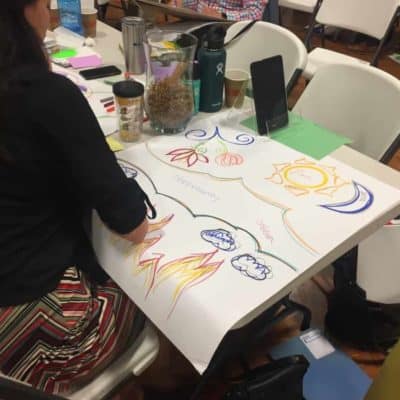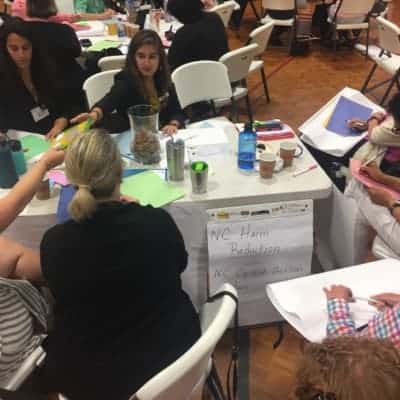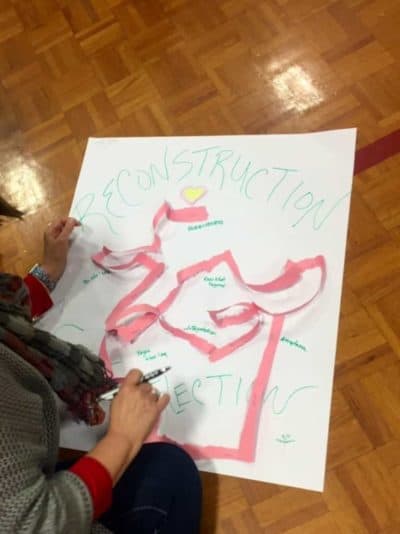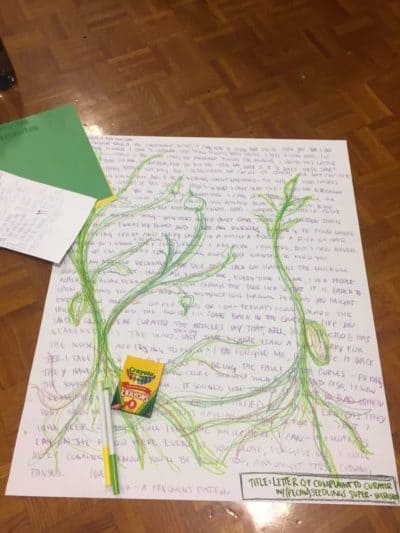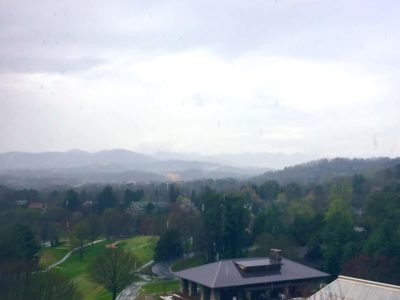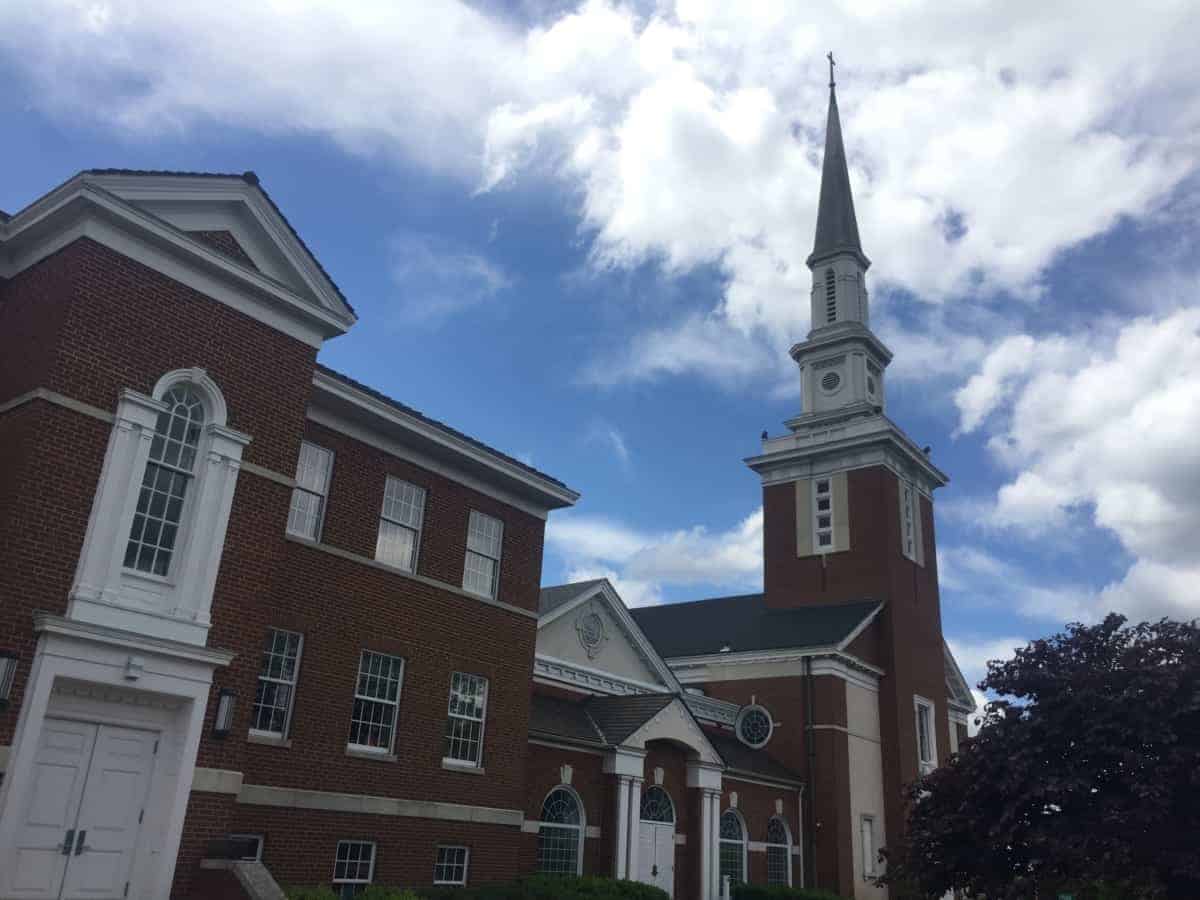

“What is your story? What is your relationship with your constantly evolving story? How do you hold, fold, carry, or bury your story?”
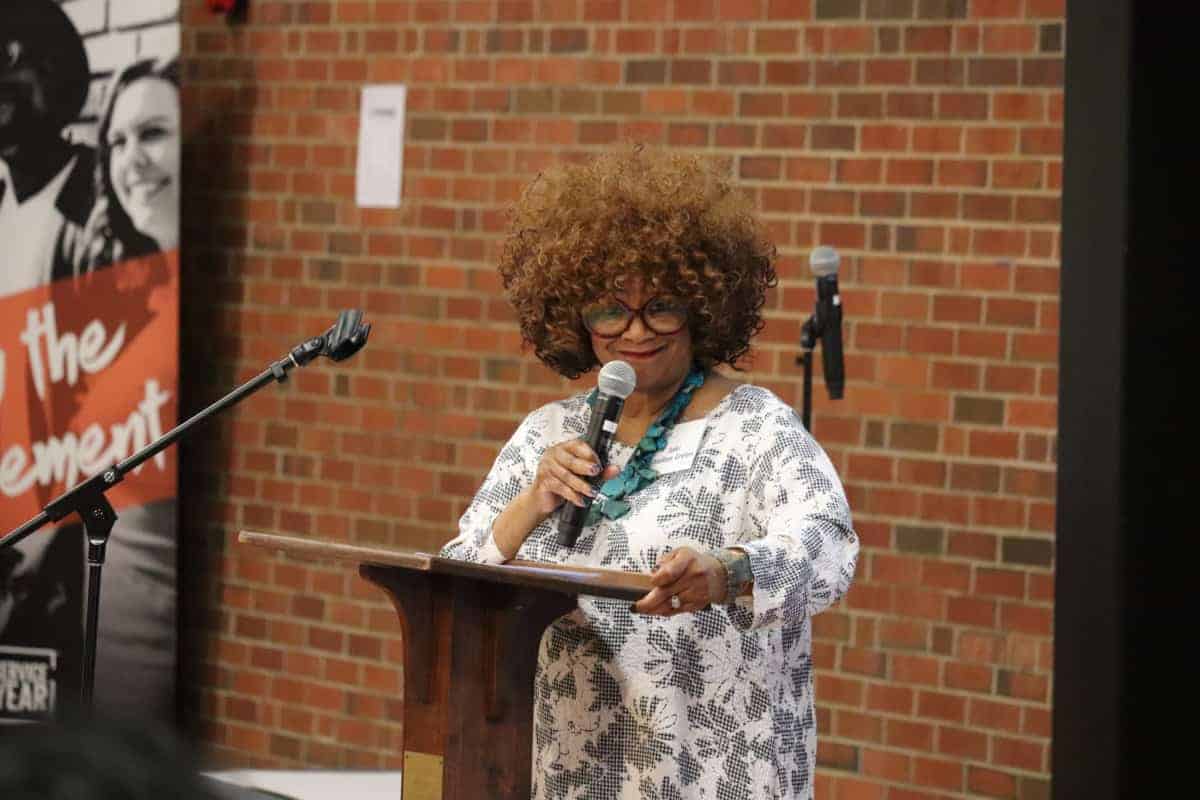

Jaki Shelton Green, keynote speaker at the Rural Faith Communities as Anchor Institutions (RFACI) conference, kicked off the gathering with this question. The one-and-a-half day conference, hosted by the Institute for Emerging Issues, was held at Front Street United Methodist Church in Burlington.
Green was recently named North Carolina’s ninth poet laureate, and having grown up in Orange County, was a perfect fit to welcome the crowd of faith leaders and partners working to strengthen rural communities across the state.
Among her many jobs, she is a creative writing coach and leads workshops and trainings to evoke emotion, vulnerability, and identity within her students. She spoke to the group of pastors, laity, and faith partners about her story, how the written word was passed from her ancestors, and challenged the crowd to describe their own narrative.
North Carolina Poet Laureate Jaki Shelton Green leads #RFCAI faith leaders and partners through a self reflection exercise and helps them construct their “human museums.” #ReConnectNC through faith and one human connection at a time. pic.twitter.com/hXPkaV6aWG
— IEI (@emergingissues) May 14, 2019
The crowd was tasked with creating a “human museum,” and to ask themselves, “What fills your life? What do the ‘rooms’ in your life contain? How would you reorganize or reconstruct them?” The activity challenged people to open up and set the tone for compassionate listening for the conference.
Jason Bivins, an N.C. State professor in the Department of Philosophy and Religious Studies, recently reflected on this idea that faith-based organizations serve as anchor institutions in an interview with IEI.
“Religious institutions in rural locations have historically been more likely to serve as anchor institutions because of geographical isolation, religious identity serving as a point of shared identity, and the relative absence of other integrating institutions in these areas,” said Bivins.
IEI has been working on a grander scale with their ReCONNECT series to surface the biggest issues facing North Carolinians. Believing faith-based organizations don’t just supply a place of worship, but also a community center, they have created opportunities, such as the RFCAI conference, for threading ideas and sharing stories of success. They are operating on the idea (after crowd-sourcing input from over 31,000 North Carolina residents) that the need for civil conversation is imperative for us to feel more connected to one another.
Our IEI Commander in chief @lboney speaking to the many faith leaders and partners in attendance during the #RFCAI Conference about the importance of having #civicconversations and encouraging them to join us in our effort to #ReConnectNC through civic dialogue. pic.twitter.com/p1nue8X1vr
— IEI (@emergingissues) May 15, 2019
The RFACI gathering was intentional in its exploration of topics. Faith-based leaders were asked what resources they were looking for, and IEI creatively supplied them. During “Curbside Consulting” sessions, over 15 partner organizations set up tables to offer knowledge and direct help in their fields of expertise. Among the group, we saw RAFI’s Come to the Table, which works to relieve hunger and strengthen just, sustainable agriculture in rural North Carolina, Congregations for Children, which supports students in public schools who are living in poverty, and the the NC Rural Center, who educated attendees on Asset-Based Community Development.
What is Asset Based Community Development? We got the expert, @HeatherKilbou from the @NCRuralCenter to give us a little #edexplainer! #ReconnectRFCAI @emergingissues pic.twitter.com/ZeqN7BJmOz
— EdNC_Faith (@EdNC_Faith) May 15, 2019
IEI organized multiple break out sessions focused on audience-initiated issues with statewide leaders on topics such as resilience and stress, the opioid crisis, mental health, racial wealth, education, ACES, and youth, and more. Panels on authentic collaboration and spiritual practices in regards to self-care, resilience, and stress were sprinkled throughout the conference.
The conference ended on a panel entitled “Servant Leadership for the Long Haul.” Panelists Hanna Broome, Darren Crotts, and Susan Pendercock spoke to the crowd about living in leadership. When asked what servant leadership meant to them, Crotts explained:
“It means to always be a learning spirit. Be curious, where is the face of God in this? You will encounter it if you are being a servant leader.”
You can learn more about IEI’s ReCONNECT initiative in the slides below.
